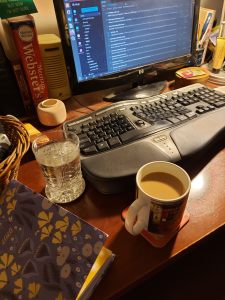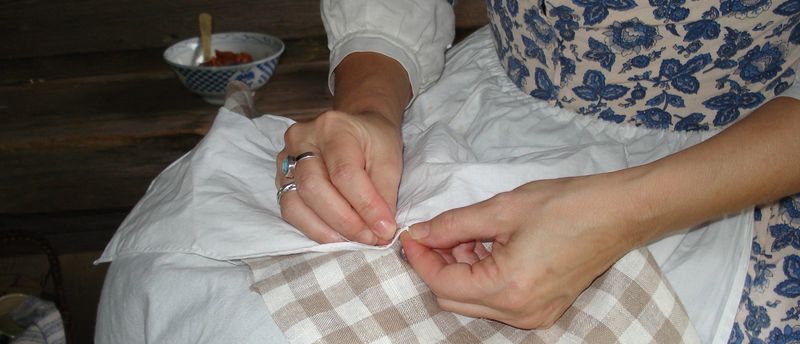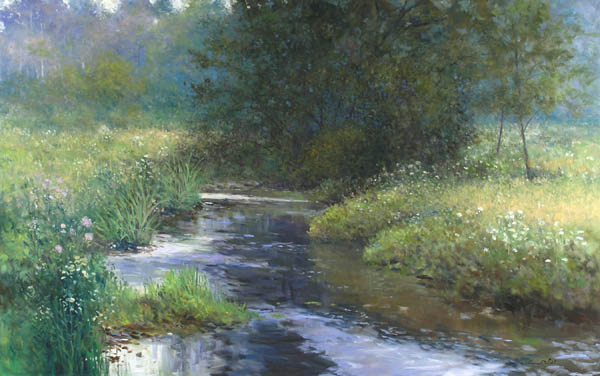A Publisher’s Observation
I work part time for an Indie publisher. Despite having an inviting online and social media presence, and having their books available at nearly every online platform, directly through their own website, as well as any bookstore, Bookshop.org, and libraries worldwide through industry-standard platforms, invariably an author will ask: “When will my books be up on That Big Platform?”
This question, because people need to know, and also so that perhaps we can get some work done by not having to answer it repeatedly, merits a public response. Now, we can just point to this blog post, and get on with our day.
That Big Platform (TBP, for short) is always the last to upload information about Indie publishers’ books. I don’t look for them for another month after release, on average. Occasionally, we’ve had previously published authors’ books show up within a week of release, especially if they have TBP Author Central.
TBP may have the “largest” online presence, but they’re actually responsible for the very smallest portion of online sales of books, only about 12%, when compared to the total of all other outlets. They do their best to raise that by putting out the myth that they’re the “best” place to get books. They are not, by a long shot. They’re not even the cheapest, and their customer service to Indies is non-existent. Buying direct from the publisher is not only the cheapest, but it’s usually the fastest, especially considering TBP is so slow about putting up indie & small press catalogues. Added to this, there is literally no portal for indie presses to talk to in order to ask about when the books will show up. We can put in a general customer service request and get a boilerplate, “sorry, can’t help you” kind of response. This is because they see us as a type of competition to their “self-publishing” platform.
Some authors, who have configured their accounts to “pre-approve” their books thru their own Author page, do seem to be able to get through to TBP and get their books to show up faster. Others are given a boilerplate message that it’s in the hands of the publisher or distributor. It’s absolutely not. It’s a game TBP plays to try to benefit their own faux-indie self-publishing platform. They try to push that to Authors as an alternative, so they keep the business on their platform.
Lastly, TBP pays so little per book, with not that many sales, months after these sales take place, that we honestly don’t miss it. We get much better exposure through Barnes and Noble, the Apple iBookstore, other online platforms, and small local bookstores or others that work directly with us or the Authors to get the books on their shelves with the least expense and no delays. Bookstores can purchase directly with the same 40% discount our Authors get & low shipping costs (which is less than Ingram offers unless they buy in large quantities). In addition, we offer net-30, net-60, net-90, and even net-120 terms, so that most bookstores sell all their books before needing to cut us a check.
Many others before me have pointed out how TBP is not your friend, and they are not good for books, readers, authors, or publishers. They’re responsible for some of the worst labor and selling practices in the world. It’s time we stopped kneeling and bowing to them.
Our books are distributed through Ingram, and we are what is known as ‘Wide,’ meaning we do not publish with the distribution limitations TBP requires of its own platform publishers. You may be aware of this divide in the publishing industry: because of the exclusivity TBP requires, and all but the very largest publishers are subject to, most publishers have to make a choice: either publish exclusively to TBP according to their rules, and risk never being seen anywhere else, or publish traditionally, distribute internationally through Ingram, and wait for TBP to decide to pick up the book whenever it updates its database of available books. Ingram is the largest book distribution network; it is how all bookstores and all online media outlets, including TBP, order most of their books. But TBP would rather have full control over as many books as possible on their platform, via their own self-publishing options, so they’ve forced this choice on writers and publishers. Their hope is that some authors will not publish their next book with a small/indie, and publish with them, accept the exclusivity requirements, and lose sales they could have off-platform because no one else picks up the book. And that’s fine for them, but it’s really not a fair choice to Authors.
Remember: you don’t need them. They need you, and that’s their problem. Don’t make it yours. Publish happily with your indie – or on your own – and find your customers organically, honestly, and directly for the best experience, and the least amount of stress and headaches.
Dropping from the veils of the morning
I will arise and go now, and go to Innisfree,
And a small cabin build there, of clay and wattles made;
Nine bean rows will I have there, a hive for the honeybee,
And live alone in the bee-loud glade.
And I shall have some peace there, for peace comes dropping slow,
Dropping from the veils of the morning to where the cricket sings;
There midnight’s all a-glimmer, and noon a purple glow,
And evening full of the linnet’s wings.
I will arise and go now, for always night and day
I hear the water lapping with low sounds by the shore;
While I stand on the roadway, or on the pavements gray,
I hear it in the deep heart’s core
—Wm. Butler Yeats, “The Lake Isle of Innisfree” (1892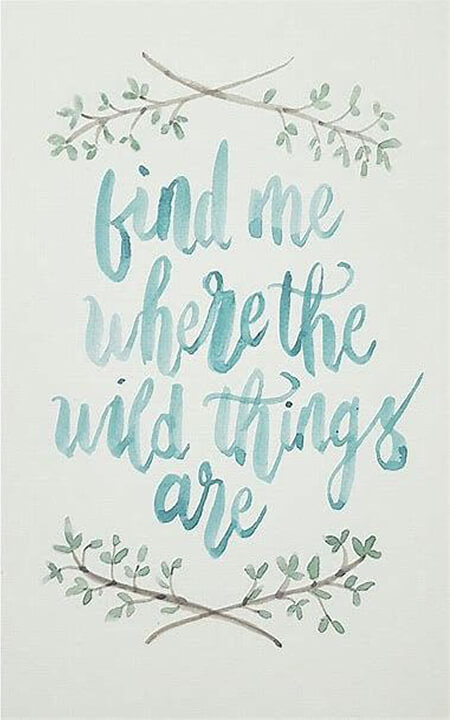
Song
Song
If space and time, as sages say,
Are things which cannot be,
The fly that lives a single day
Has lived as long as we.
But let us live while yet we may,
While love and life are free,
For time is time, and runs away,
Though sages disagree.
The flowers I sent thee when the dew
Was trembling on the vine,
Were withered ere the wild bee flew
To suck the eglantine.
But let us haste to pluck anew
Nor mourn to see them pine,
And though the flowers of love be few
Yet let them be divine.

It’s not what you think
❤
The First Ten Words by Rich Larson
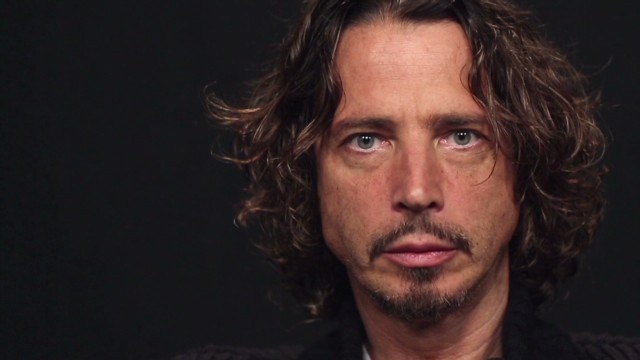 Chris Cornell, 1964-2017
Chris Cornell, 1964-2017
Chris Cornell died early Thursday morning. His band Soundgarden played a show on Wednesday night at the Fox Theater in Detroit. Two hours after the show ended, he was gone.
For two days, I’ve been working on a piece to pay tribute to him, and it’s been a struggle. Usually when I have a problem like this it’s because I’m staring at a blank screen trying to figure out what I want to say. That’s not the problem this time. The problem is I have way too much to say.
I’m not going to sit here and claim to have been a huge fan of Soundgarden. I didn’t dislike them, I just had to take them in small doses. I was a fan of Cornell. I love “Seasons,” the solo song he had on Cameron Crowe’s movie, Singles. It’s a droning acoustic song about isolation and the…
View original post 1,488 more words
Willows, Encore
I post, as you all will have surmised, when I have something to share, or say.
This morning’s surfeit of riches:
From a beautiful entry posted November 1st at Via Negativa: http://www.vianegativa.us/2016/11/moat/
Just two random people playing elves in the forest, like ya do
Artist Economics
It just sounded interesting. I had to explore.
Adapting a Studio to a Changing Economy
Trending items seem to be going toward the more delicate, minimalist, and refined. I’ve branched out beyond Etsy because I believe one should expand horizons and keep options open. To that end, I’ve made accounts at both DaWanda and Zibbet.
I much prefer handstitching to other forms of needlework. It serves the dual purpose of occupying my mind and my hands and is therefore a creative therapy as well as producing something useful and hopefully lovely to look at. The economics of this is pretty obvious.
Creative pursuits are easier when one has a touchstone for inspiration. Mine has to do with rivulets, creeks, waterways hidden among verdant vegetation, which is why I incorporate willows and rivers into my online presence. These images help to calm turbulent thoughts and evoke a kind of quiet anarchy. There’s a duality at work, as nature knows no bounds, and this reminds me that as water travels over rocks, rough places eventually become smooth. This demonstrates that persistence and consistence result in desired change. And all work results in something transformative, even if we do not know exactly where it is leading, or how things will all turn out.
Nature does not know extinction. All it knows is transformation. Nothing disappears without a trace. Werner von Braun
But back to economics. In its purest sense, economics is the science of choice. It is also a science of change. As is creativity. Art is not the sole claimant here. Art and science are both involved. The synapses and neurons in my brain create and react to choices and direct my actions in creative pursuits. When we separate choice from action all that results is a mindless muddle. Creativity reveals the world behind our choices. We should strive to select those things that reflect meaning in our lives.
Willow Run, by J. Melberg
Originally posted at Susannah’s Heirloom
anger smolders
The Snow by Emily Dickinson
Snow flakes
by Emily Dickinson
I counted till they danced so
Their slippers leaped the town –
And then I took a pencil
To note the rebels down –
And then they grew so jolly
I did resign the prig –
And ten of my once stately toes
Are marshalled for a jig!Source: The Poems of Emily Dickinson Edited by R. W. Franklin (Harvard University Press, 1999)
The Snow
It sifts from leaden sieves,
It powders all the wood,
It fills with alabaster wool
The wrinkles of the road.
It makes an even face
Of mountains and of plain, –
Unbroken forehead from the east
Unto the east again.
It reaches to the fence,
It wraps it, rail by rail,
Till it is lost in fleeces;
It flings a crystal veil
On stump and stack and stem, –
The summer’s empty room,
Acres of seams where harvest were,
Recordless, but for them.
It ruffles wrists of posts,
As ankles of a queen, –
Then stills its artisans like ghosts,
Denying they have been.

